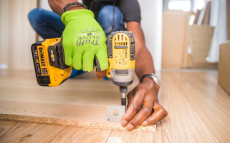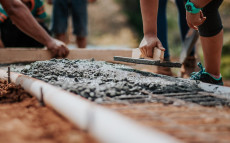- pathfindersAI
- Job Profile
Brickmasons and Blockmasons
Summary
Brickmasons and Blockmasons: Building a Solid Future
What They Do
Brickmasons and Blockmasons play a quintessential role in the construction industry, laying the literal and figurative foundations of our built environment. These skilled tradespeople specialize in constructing walls, partitions, fireplaces, chimneys, and other structural elements by binding together bricks, blocks, or structural tiles using mortar or other adhesives. Their work includes both new constructions as well as renovation projects, ensuring the durability and aesthetic appeal of the structures they work on. By meticulously placing each unit, Brickmasons and Blockmasons contribute significantly to both the stability and the architectural beauty of buildings.
Job Responsibilities
The daily job responsibilities of Brickmasons and Blockmasons can be as varied as the projects they undertake. They read and interpret blueprints and building plans, ensuring that the dimensions and layout comply with the architectural specifications. Measuring and cutting materials to fit specific spaces is a crucial task that requires precision and accuracy. Beyond laying bricks and blocks, they mix and apply mortar, ensuring even and strong bonds between units. They also repair and maintain older structures, replacing damaged bricks and reinforcing crumbling walls. Quality control is paramount; hence, they continually inspect their work for alignment and structural integrity. Additionally, modern Brickmasons and Blockmasons might use various tools and machinery to aid in lifting heavy materials and to increase their efficiency on the job site.
Essential Skills
Being successful as a Brickmason or Blockmason requires a unique combination of skills. Foremost among these is manual dexterity and physical stamina, given the labor-intensive and hands-on nature of the work. A keen eye for detail ensures that each brick or block is placed correctly and securely. Analytical skills are also crucial for interpreting blueprints and building plans accurately. Moreover, problem-solving abilities come into play when encountering challenges such as uneven surfaces or unforeseen structural issues. Good communication skills are essential for coordinating with other construction team members and ensuring that project objectives and timelines are met. Additionally, proficiency in using specialized masonry tools and machinery is necessary.
Educational Pathways
The path to becoming a Brickmason or Blockmason typically begins with a high school diploma or equivalent. Courses in mathematics, mechanical drawing, and shop provide a valuable foundation. Prospective masons often start their careers through apprenticeships, which combine on-the-job training with classroom instruction. These apprenticeships, usually sponsored by unions or contractor associations, last around three to four years and offer hands-on experience under the guidance of seasoned professionals. In some regions, vocational schools or community colleges also offer programs in masonry, providing both theoretical knowledge and practical experience. Certification, while not always mandatory, can enhance job prospects and demonstrate a commitment to the trade.
Career Prospects
The career prospects for Brickmasons and Blockmasons are promising, with a steady demand for skilled workers in residential, commercial, and industrial construction. As urbanization continues and aging infrastructure requires renovation and maintenance, the need for these tradespeople is anticipated to grow. Entry-level masons can advance to supervisory roles, such as project foreman or site manager, where they oversee job sites and coordinate larger teams. Some may choose to specialize in a particular type of masonry, such as stone masonry or restoration work. Additionally, entrepreneurial opportunities exist for those who wish to start their own contracting businesses. The construction industry often offers competitive wages and benefits, contributing to an attractive career choice.
Conclusion
In conclusion, Brickmasons and Blockmasons are vital to the construction industry, bringing skill, precision, and artistry to their work. Their responsibilities are diverse and demanding, requiring a unique set of essential skills. Educational pathways, such as apprenticeships and vocational programs, provide the necessary training and experience to excel in this field. With robust career prospects and opportunities for advancement, becoming a Brickmason or Blockmason promises a fulfilling and dynamic career. For those interested in building a solid and lasting legacy, this trade offers an invaluable opportunity to contribute to the future of our built environment.
Video
Compensation
| State | Median Salary | Median Hourly | Positions |
|---|---|---|---|
| AL | 51,650 | 24.83 | 530 |
| AZ | 57,930 | 27.85 | 1,570 |
| AR | 46,910 | 22.55 | 460 |
| CA | 67,200 | 32.31 | 3,140 |
| CO | 60,690 | 29.18 | 780 |
| CT | 79,400 | 38.18 | 230 |
| DE | 60,740 | 29.20 | 190 |
| DC | 61,310 | 29.48 | 410 |
| FL | 47,710 | 22.94 | 4,820 |
| GA | 54,350 | 26.13 | 110 |
| HI | 73,530 | 35.35 | 30 |
| ID | 60,320 | 29.00 | 470 |
| IL | 83,960 | 40.37 | 3,160 |
| IN | 68,560 | 32.96 | 1,910 |
| IA | 52,640 | 25.31 | 510 |
| KS | 49,410 | 23.76 | 400 |
| KY | 59,600 | 28.65 | 620 |
| LA | 45,050 | 21.66 | 290 |
| ME | 60,680 | 29.17 | 290 |
| MD | 57,930 | 27.85 | 1,570 |
| MA | 85,660 | 41.19 | 1,290 |
| MI | 61,290 | 29.46 | 2,760 |
| MN | 82,720 | 39.77 | 1,310 |
| MS | 47,870 | 23.01 | 200 |
| MO | 70,110 | 33.71 | 1,670 |
| MT | 66,380 | 31.92 | 230 |
| NE | 60,670 | 29.17 | 480 |
| NV | 50,960 | 24.50 | 820 |
| NH | 58,460 | 28.11 | 200 |
| NJ | 74,600 | 35.87 | 660 |
| NM | 46,950 | 22.57 | 260 |
| NY | 73,410 | 35.29 | 4,160 |
| NC | 47,520 | 22.85 | 1,710 |
| ND | 57,790 | 27.79 | 150 |
| OH | 64,730 | 31.12 | 2,850 |
| OK | 49,180 | 23.64 | 380 |
| OR | 75,570 | 36.33 | 430 |
| PA | 66,660 | 32.05 | 3,310 |
| RI | 62,980 | 30.28 | 230 |
| SC | 43,390 | 20.86 | 470 |
| SD | 64,540 | 31.03 | 240 |
| TN | 58,970 | 28.35 | 1,320 |
| TX | 50,460 | 24.26 | 4,960 |
| UT | 56,070 | 26.96 | 1,290 |
| VT | 55,640 | 26.75 | 110 |
| VA | 50,970 | 24.51 | 1,740 |
| WA | 93,080 | 44.75 | 830 |
| WV | 45,070 | 21.67 | 220 |
| WI | 73,400 | 35.29 | 870 |
| WY | 64,560 | 31.04 | 200 |
Similar Occupations
In this area you will find other occupations that are close to the one you were viewing in tasks, knowledge and work environment. If the primary job profile you are viewing isn't quite to your liking, take a look around and see what else is available.
Basic and Premium Accounts have more alternative occupations available than the Free account.

Carpenters - 47-2031.00
A carpenter constructs, installs, and repairs building frameworks and structures, such as stairways, doorframes, partitions, and rafters, made from wood and other materials. They also read blueprints and measure, cut, and shape wood, plastic, and other materials to complete construction projects.
-
$56,350/yr
Median Pay -
700,290
Number of Jobs

Cement Masons and Concrete Finishers - 47-2051.00
Cement Masons and Concrete Finishers prepare, pour, and finish concrete surfaces such as floors, sidewalks, roads, and curbs, ensuring they are smooth, level, and properly textured. They use a variety of tools and techniques to achieve the desired finish and may also repair and restore damaged concrete structures.
-
$50,720/yr
Median Pay -
203,560
Number of Jobs